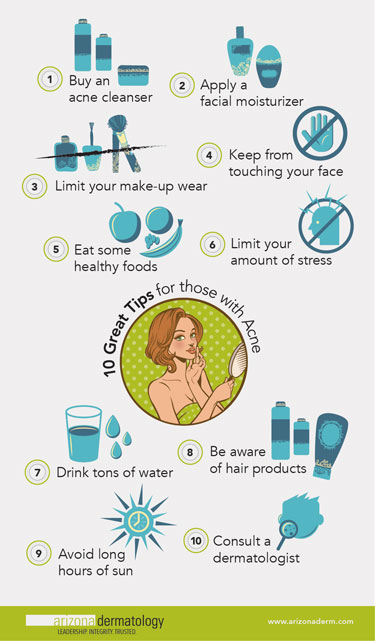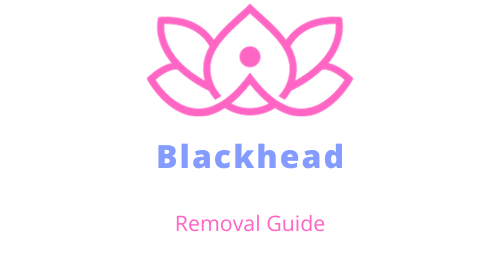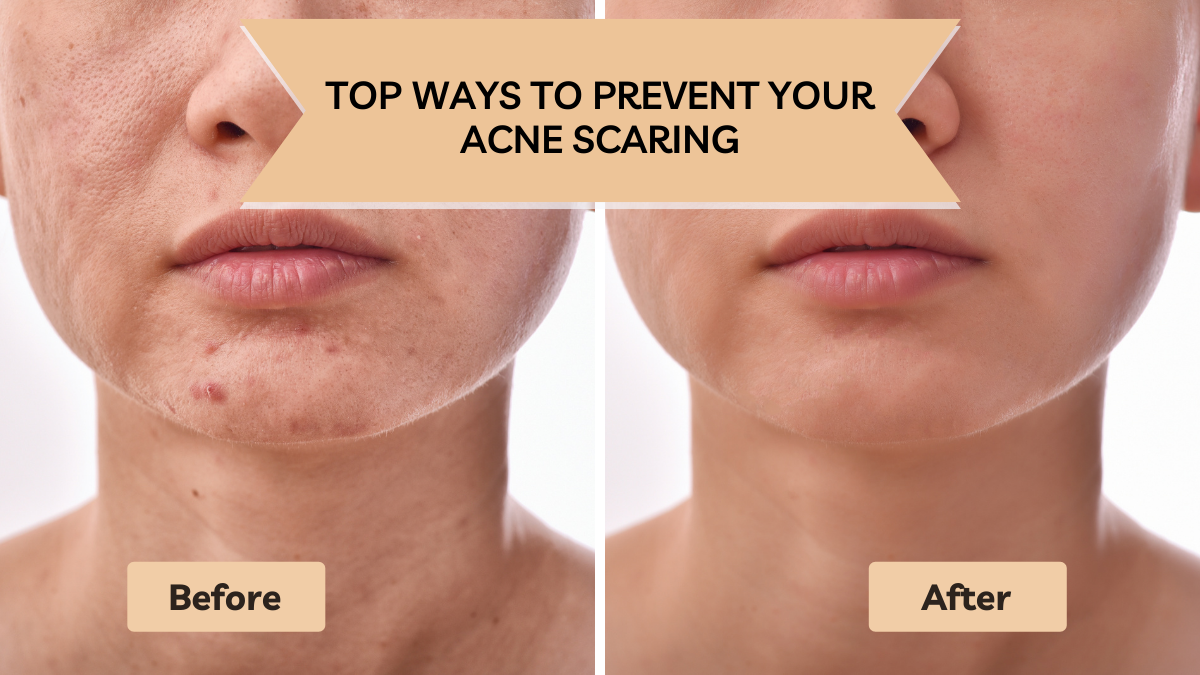The best way to reduce acne is to maintain a consistent skincare routine and adopt a healthy lifestyle. Use non-comedogenic products and avoid picking at your skin to prevent irritation.
Struggling with acne can be a frustrating experience, but with the right approach, clearer skin is attainable. A diligent skincare regimen that includes cleansing, exfoliating, and moisturizing with products tailored for acne-prone skin is crucial. Equally important is choosing makeup and skincare items labeled as non-comedogenic, meaning they won’t clog pores.
Diet and hydration also play a significant role; consuming plenty of water and a balanced diet rich in fruits, vegetables, and lean proteins can help manage breakouts. Stress management techniques such as meditation and adequate sleep contribute to overall skin health. Remember to keep your hands away from your face to minimize the transfer of oils and bacteria, and never squeeze or pick at pimples to avoid scarring and further inflammation.
The Acne Struggle
The Acne Struggle is a journey familiar to many. This persistent skin condition affects not just the skin but also the emotional well-being of individuals. Finding the best way to reduce acne involves understanding its causes and dealing with its impact on self-esteem.
Causes And Triggers
Identifying what sparks acne is the first step towards clear skin. Here are common culprits:
- Hormonal changes during puberty
- Stress leading to increased oil production
- Makeup or skincare that clogs pores
- Diet high in dairy and sugary foods
- Lack of sleep affecting skin health
Impact On Self-esteem
Acne can leave more than just physical marks. It often leads to:
| Emotional Effect | Consequence |
|---|---|
| Lowered Confidence | Avoiding social situations |
| Increased Anxiety | Constant worry about appearance |
| Depression | Feelings of hopelessness |

Credit: www.pinterest.com
Myths Vs. Facts
When it comes to reducing acne, the internet is full of advice. Some say chocolate causes breakouts; others swear by toothpaste for zapping zits overnight. But what’s the truth? It’s time to separate myth from fact in acne treatment.
Common Acne Misconceptions
Let’s bust some myths. Here’s what you may have heard about acne:
- Fatty foods and chocolate are acne’s best friends.
- Acne is a teenage problem; adults don’t get it.
- More washing means less acne.
These are not true. Acne can strike at any age, and food’s role is complex. Over-washing can actually irritate your skin more.
Truths Behind Acne Treatments
Now, let’s reveal some actual facts:
- Consistent skincare routines can help manage acne.
- Not all skin products work for everyone.
- Medical treatments might be necessary for severe cases.
Patience is key in treating acne. Results don’t happen overnight.
Daily Skincare Regimen
A clear complexion begins with a daily skincare regimen. Consistency and suitable products are vital for those battling acne. This routine involves gentle cleansing, exfoliation, moisturizing, and sun protection. Following these steps can significantly reduce acne and improve skin health.
Cleansing And Exfoliating
Cleansing removes dirt, oil, and makeup. Choose a gentle, non-comedogenic cleanser to prevent clogged pores. Use lukewarm water and pat your skin dry with a clean towel.
Exfoliating is next. It removes dead skin cells that can cause acne. A mild chemical exfoliant with ingredients like salicylic acid works best. Limit exfoliation to two to three times a week to avoid irritation.
Moisturizing And Sun Protection
Moisturizing hydrates the skin and balances oil production. Opt for an oil-free, non-comedogenic moisturizer. It should hydrate without causing breakouts.
Sun protection is crucial. Sun exposure can worsen acne scars. Apply a broad-spectrum SPF 30 or higher sunscreen every day. Choose a lightweight, oil-free formula to keep pores clear.

Credit: thenakedchemist.com
Dietary Adjustments
Dietary Adjustments play a pivotal role in the battle against acne. What we put into our bodies often reflects on our skin. Understanding which foods may trigger breakouts and which can help soothe inflammation is key. Let’s explore these dietary choices.
Foods To Avoid
Some foods can exacerbate acne. They may increase inflammation or stimulate excess sebum production. Identifying and eliminating these can help clear your complexion.
- Dairy Products: Milk and cheeses might worsen acne for some.
- Refined Sugars: High-sugar snacks and drinks can trigger breakouts.
- Greasy Foods: Fried items can clog pores and increase oiliness.
- Processed Snacks: Chips and cookies are often high in unwanted oils and fats.
Acne-friendly Foods
Including certain foods in your diet can promote skin health and reduce acne. These foods are rich in nutrients that combat inflammation and support skin repair.
| Food Type | Benefits |
|---|---|
| Fruits and Vegetables: | Rich in antioxidants, they help fight free radicals. |
| Omega-3 Fatty Acids: | Found in fish and flaxseeds, they reduce inflammation. |
| Zinc-Rich Foods: | Pumpkin seeds and lentils support skin healing. |
| Probiotics: | Yogurt and kombucha balance gut health for clearer skin. |
Professional Treatments
Many people struggle with acne and often seek professional treatments. These treatments can provide powerful solutions. Professional options range from dermatological procedures to various prescription medications. Understanding these choices is crucial to finding the best acne solution.
Dermatological Procedures
Dermatologists offer specialized procedures for acne reduction. These are effective for persistent acne. Common procedures include:
- Chemical Peels: These remove the top layer of skin, reducing bacteria and dead cells.
- Laser Therapy: Targets and reduces acne-causing bacteria, also helps with acne scars.
- Extraction: Professionals carefully remove blackheads and whiteheads.
- Microdermabrasion: This treatment exfoliates the skin, clearing clogged pores.
Over-the-counter Vs. Prescription Options
Choices for acne treatment can be over-the-counter (OTC) or prescription-based. Each has its pros and cons.
| OTC Options | Prescription Options |
|---|---|
| Accessible without a prescription | Customized to individual skin needs |
| Milder formulas | Stronger, more potent treatments |
| Good for mild acne | Targeted for severe or persistent acne |
| Often less expensive | May require insurance coverage |
OTC treatments often include ingredients like benzoyl peroxide and salicylic acid. Prescription options might include antibiotics, retinoids, or hormonal treatments. Consulting with a dermatologist can determine the best course of action.
Natural Remedies
Natural remedies often provide a gentle yet effective way to reduce acne. Many people turn to mother nature’s pharmacy to soothe and heal their skin. Let’s explore some of the best natural ways to say goodbye to acne.
Herbs And Supplements
Herbs and supplements can play a key role in skin health. Tea tree oil has antibacterial properties that target acne-causing bacteria. Green tea extract helps reduce inflammation. For a daily boost, consider the following:
- Zinc: This mineral helps reduce inflammation and bacteria growth.
- Omega-3 fatty acids: Found in fish oil, they can lower skin inflammation.
- Vitex: Also known as chaste berry, it balances hormones linked to acne.
Home-made Face Masks
Creating a face mask at home is simple and effective. Natural ingredients can help unclog pores and reduce oiliness. Try these easy recipes:
- Honey and Cinnamon Mask: Mix for an antibacterial and anti-inflammatory effect.
- Oatmeal and Yogurt Mask: Combine to soothe and exfoliate the skin.
- Aloe Vera and Turmeric Mask: Blend for a healing and brightening impact.
Lifestyle Changes
Winning the battle against acne often means adjusting how you live. Your skin reflects your health. Simple changes can make a big difference. Let’s explore how you can transform your daily routine to get clearer skin.
Stress Management TechniquesStress Management Techniques
Stress can trigger acne breakouts. Keeping calm is key for healthy skin. Here are ways to manage stress:
- Deep Breathing: Start with 5 minutes a day. Breathe in and out slowly.
- Regular Sleep: Aim for 7-9 hours each night.
- Mindfulness: Practice meditation or yoga to stay centered.
Exercise And Acne Connection
Regular exercise helps reduce acne. It boosts circulation and reduces stress. Here’s how to exercise right for your skin:
- Choose activities you enjoy. You’ll stick with them longer.
- After sweating, wash your face to prevent pores from clogging.
- Wear moisture-wicking clothes. They keep your skin dry and reduce irritation.
Consistency And Patience
Consistency and patience are keys in the journey to reduce acne. Clear skin doesn’t come overnight. A consistent skincare routine and patience to see results are crucial. Small daily steps lead to big improvements over time. Stick to your regimen, and trust the process.
Setting Realistic Expectations
Understanding acne’s nature helps set achievable goals. It’s not magic. It takes time for products to work. Don’t expect immediate results. Stay realistic about the time frame for improvement. Remember, everyone’s skin is different.
Tracking Progress Over Time
Monitor your skin’s progress. This helps stay motivated. Use a diary or an app. Note changes weekly. Take photos to compare. Celebrate small victories. They add up to significant changes.
Remember, clear skin requires dedication. Treatments vary in effectiveness. Some may see results in weeks; others may need months. Stay focused on your personal journey.
When To See A Professional
Struggling with acne can be tough, and sometimes at-home remedies just don’t cut it. Knowing when to seek professional help is key to effectively treat your acne and prevent scarring.
Identifying Severe Acne Cases
Acne comes in many forms, ranging from mild to severe. Recognizing the signs of severe acne is crucial. Look for persistent redness, deep cysts, and discomfort. Severe acne can lead to scarring, making professional evaluation essential.
- Large, painful nodules
- Extensive redness and swelling
- Clusters of deep cystic lesions
Don’t wait too long. If over-the-counter treatments fail after six to eight weeks, it’s time to consult a dermatologist.
Understanding Medical Interventions
Professional treatments can significantly improve your skin’s condition. Dermatologists provide tailored solutions based on individual needs. Medical interventions might include prescription creams, oral medications, or advanced therapies like laser treatment.
| Treatment | Benefits |
|---|---|
| Topical Retinoids | Unclog pores, reduce lesions |
| Antibiotics | Fight bacteria, decrease inflammation |
| Isotretinoin | For severe cases, potential for long-term remission |
| Hormonal Treatments | Regulate hormones that can cause acne |
Remember, each person’s skin is unique. Consulting a professional ensures you get the best treatment for your acne.

Credit: arizonaderm.com
Prevention Strategies
Clear skin starts with smart prevention. Understanding how to ward off acne means fewer breakouts and better skin health. Let’s dive into the best strategies to keep those pesky pimples away.
Daily Habits To Keep Acne At Bay
Consistent routines pave the way for clear skin. Small daily actions can make a big difference. Start with these steps:
- Wash your face twice a day with a gentle cleanser.
- Use non-comedogenic products to avoid clogged pores.
- Never go to bed with makeup on; always remove it thoroughly.
- Change pillowcases weekly to minimize bacteria.
- Resist touching your face to limit oil and dirt transfer.
- Stay hydrated and choose healthy foods to nourish skin from within.
Long-term Skincare Philosophy
Your approach to skincare should focus on consistency and patience. Embrace a routine that includes:
- Regular exfoliation to remove dead skin cells.
- Moisturizing, even if you have oily skin.
- Applying sunscreen daily to protect against harmful UV rays.
Remember, good skin is a journey. Stick with your skincare regimen and give products time to work. Trust in a routine that’s simple, effective, and tailored to your skin’s needs.
Frequently Asked Questions
How To Clear Up Acne Fast?
To clear acne fast, start by washing your face twice daily with a gentle cleanser. Apply a benzoyl peroxide or salicylic acid cream to affected areas. Avoid popping pimples, which can cause scarring. Keep your hands off your face to prevent bacteria spread.
Consider a dermatologist’s advice for persistent cases.
How Do I Stop My Face Acne?
To stop face acne, maintain a daily skin care routine with gentle cleansers. Avoid touching your face frequently and keep your hair clean. Choose non-comedogenic makeup and skin products. Stay hydrated and follow a balanced diet. Consult a dermatologist for persistent acne issues.
What Actually Reduces Acne?
Reducing acne involves maintaining clean skin, using non-comedogenic products, managing stress, eating a balanced diet, and consulting a dermatologist for treatments like retinoids, antibiotics, or hormonal therapy. Regular exfoliation and avoiding skin irritation can also help.
How To Make Acne Go Away Naturally?
To naturally reduce acne, cleanse your skin daily, avoid heavy makeup, and eat a balanced diet. Apply tea tree oil and maintain hydration. Don’t pick at pimples; this can worsen them.
Conclusion
Clearing your skin of acne is within reach. Adopt a consistent skincare routine and consider dietary changes. Don’t forget to consult a dermatologist if necessary. Remember, patience and persistence are key. Start your journey to clearer skin today.

